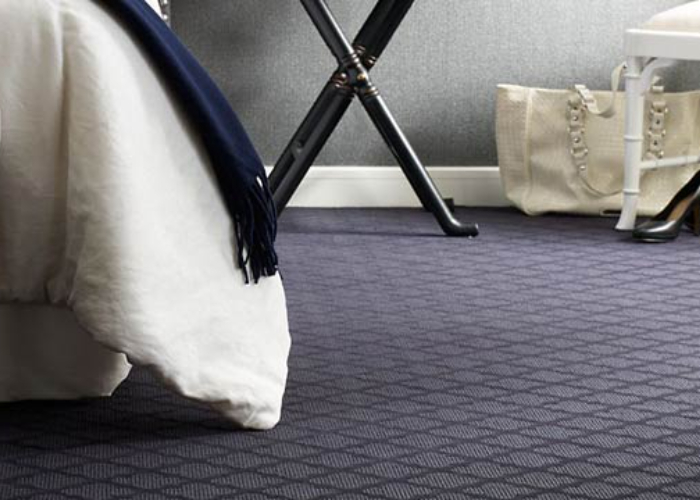
Like any product, carpet is ultimately the combination of its materials. The material used to make carpet will determine its quality, appearance, feel, durability and price.
The pile fiber makes up approximately 80% of a carpet’s materials so it greatly affects the quality and overall price of the carpet. The majority of carpet piles’ fibers are made with one of four different materials including wool, nylon, polyester or polypropylene, with wool and nylon being the most popular.

Of all the carpet pile fabrics, wool is considered the best. It’s luxurious and soft to the touch, making it a comfortable indulgence. Not only is it soft to the touch, wool is tough. It’s naturally crush-resistant because of the natural kink in the fiber so it stays beautiful, soft and strong long term. You don’t have to worry about heavy wear on wool carpet because it can stand up to foot traffic.
Wool is also naturally fire resistant making it a safer floor covering to have in a home. The wool will smolder if hot enough, but won’t catch flames that can carry to the rest of the house.
Lastly, wool is a natural, sustainable fabric. The eco-friendly fiber is gathered from sheep that are sheared annually. Because each sheep can only be shorn once a year and produces a limited amount of wool each time, the fabric is expensive to acquire. Because of that, wool carpet is the most expensive on the market and a luxury not everyone wants to purchase despite its many benefits.
Nylon carpet fiber is a manmade material that makes up 65% of carpet sold in the U.S. Not only is it more affordable to produce carpet from nylon, this carpet fiber is the strongest synthetic fiber meaning the carpet will last longer and stand up to more wear. Because of this durability, nylon pile is a good choice for heavy traffic areas or commercial settings.
Because it’s water-resistant by design, nylon carpet is less likely to acquire mold or mildew like other carpet fibers/materials. This advantage is another reason nylon carpeting is great for heavy traffic areas where moisture could be an issue.
Technological advances have made big strides in nylon carpets over the years. Carpet manufacturers have been able to produce smaller and thinner nylon fiber strands that result in a much softer and comfortable carpet. Using man-made materials also allows for other technological advances beyond softness.
One example of technological advances in carpeting comes from DuPont. DuPont has developed the SmartStrand fiber, made of materials that have been engineered to be soft and durable. Not only have the technological advances made the carpet softer and more durable, SmartStrand is eco-friendly. It is made from a specialized kind of polymer that is renewably sourced and is comprised of 37% completely sustainable materials.
Perhaps the most impressive innovation of SmartStrand is its stain resistance. Stain resistant carpeting isn’t a new invention, but what’s different about SmartStrand is the stain resistant capabilities are built directly into the carpet’s fabric pile. Many other stain resistant carpets are treated with a material after their construction that can be worn down through heavy use or by certain chemicals like bleach. SmartStrand is able to stand up to bleach and other wear and tear because of its unique composition.